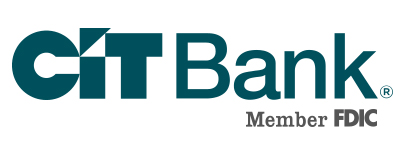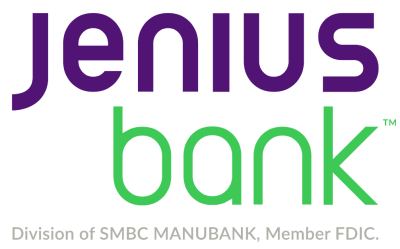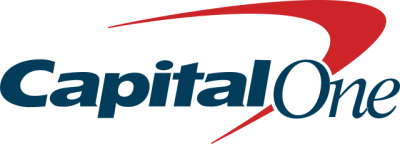Pros:
- Virtual Wallet rates are competitive
- Relationship Rates offer higher rates
- Student accounts offered
- Business accounts are available
Cons:
- Low interest rates for other accounts
- Accounts have monthly fees
- High required balances to avoid fees
- Must open CDs at branch locations
Pros:
- Chase Pay
- Chase Liquid
- Credit Journey
- Chase QuickDeposit
Cons:
- Products Not Offered Everywhere
- Accounts Have Fees
- High Opening Amount
- High Daily Balances
Opening PNCs Virtual Wallet accounts earn competitive interest rates. This includes three specific accounts: the Spend, Reserve, and Growth accounts. The Spend account is your checking account for everyday spending. The Reserve account is a short-term savings account. It offers overdraft protection for the Spend account. The Growth account is for longer-term goals, like a down payment, car, or vacation. Virtual Wallet accounts offer interest rates that are competitive with other online accounts. You must link these accounts together to earn competitive rates.
Some Growth savings accounts offer slightly higher rates with Relationship Rates. You must qualify to earn the Relationship Rates. To qualify, you must have a set amount directly deposited into the Spend account. Making five debit transactions also qualifies you. The amounts of direct deposits vary from $500 to $5,000 depending on the account. If you qualify, your money will earn even higher interest rates.
PNC offers accounts for college students. With proof you are enrolled in college, the monthly fee is waived. This account offers a debit card and online and mobile banking. The same features of Virtual Wallet are available for the college account. Parents can sign up to receive alert texts when balances are low or overdrawn. Some colleges offer other perks with the account. For example, one college allows you to use your student ID card as a PNC ATM card.
PNC offers small and commercial business accounts. Checking, savings, and money market accounts are available. CDs, credit cards, and online services for your business are available. Bill pay, remote check deposits, and online payroll are services offered.
PNC standard account interest rates are low. To earn the competitive rates on Virtual Wallet accounts, you must meet the set requirement. If you open a standard account or do not meet the requirements, interest rates are low. To earn the competitive rates, be sure you open the right accounts and meet the requirements.
Most PNC accounts have a monthly fee. The fees range from $5 to $25 depending on the account. There are ways to waive the fees. Having a set amount in the account or in qualifying PNC accounts will waive the fees. Direct deposits of a set amount or if you are 62 years or older will waive some fees. As of March 2019, PNC loan and investment balances are not included to waive monthly fees.
The amounts required to have in PNC accounts to waive the monthly fees are high. The money market account requires $5,000 to avoid the monthly fee. Virtual Wallet accounts require $500 to $5,000 to waive the fee or $10,000 to $25,000 across all PNC deposit accounts. After March 2019, loans and investment balances will no longer count toward the total amount to waive fees. Their standard savings account only requires $300 to waive monthly fees.
Customers must open PNC CDs at a branch location. Most PNC CDs required $1,000 to open. The CDs with terms of seven to 89 days require $5,000 to open. PNC has branch locations in 19 states and the District of Columbia.
Chase Pay is a digital wallet. It makes purchases easy. Pay for gas without getting out of the car. Pay without transferring your card number to websites and apps with the Chase Pay logo. You can use the QR code at stores. Coupons are automatically added to your favorite stores.
Chase Pay lets you use your Chase Ultimate Reward points to make purchases. This keeps your information secure and up to date. Thousands of places accept Chase Pay including Walmart and Best Buy. You still earn reward points when you use Chase Pay. This cannot be used with subscriptions like Netflix or Amazon Prime or outside the U.S.
Chase Liquid is a reloadable card. Opening deposit is $25. Money is directly deposited on the card. Money can be deposited through Chase QuickDeposit, direct deposits, or you can transfer money from other accounts to the cards. With the Chase Liquid card, you can make purchases, withdraw cash, pay bills, and use Zelle. It offers zero liability protection for unauthorized transactions. There is a $4.95 monthly fee to use Chase Liquid.
Chase Credit Journey helps get your credit under control. This is free to anyone, not just Chase customers. Get email alerts about changes to your credit. Check your credit score anytime for free, without hurting your score. Credit Journey shows how credit is affected when debts are paid off, or new accounts opened. Using this tool helps prevent fraud.
Deposits are easy with Chase QuickDeposit in the Chase Mobile App. Snap a picture of your check and follow the instructions. Make a deposit anytime, anywhere from a mobile phone or tablet. Step-by-step instructions are on their website.
Not all Chase products and features are offered in all areas. Input your zip code to learn what products are available in your area.
All Chase accounts, except CDs, have fees. Savings and checking accounts have a monthly maintenance fee. The fees range from $5 to $25. Waive fees by having a minimum balance in the account, or by linking a checking and savings account together. Direct deposits or automatic payments waive the monthly fees as well.
Every account with Chase needs a minimum of $25 to open. Some accounts require $100 as the opening balance.
Savings and checking accounts require a daily balance to avoid fees. The daily balances range from $1,500 to $100,000. If you cannot maintain this amount, you will have to use one of the other ways to have your fees waived.





